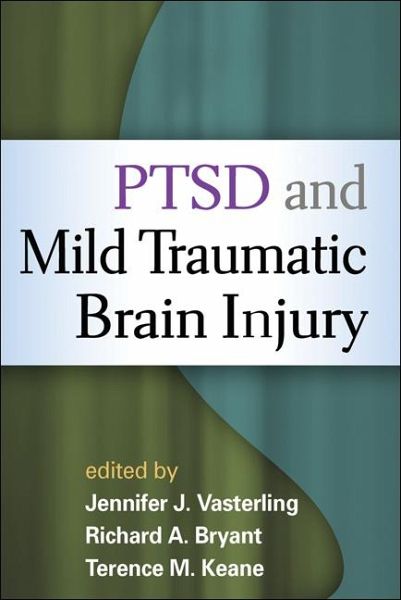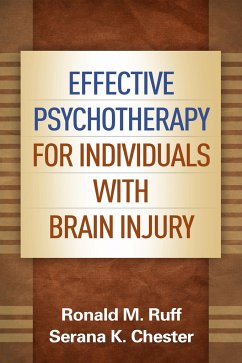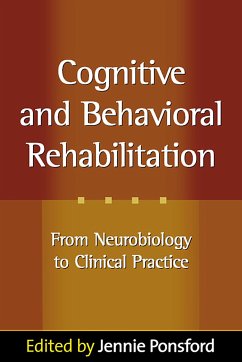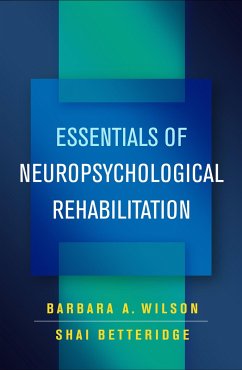
Ptsd and Mild Traumatic Brain Injury

PAYBACK Punkte
37 °P sammeln!
Posttraumatic stress disorder (PTSD) and mild traumatic brain injury (mTBI) can each cause significant functional impairment--and these "invisible injuries" frequently co-occur. Events that lead to traumatic brain injury are often also psychologically traumatic. This authoritative volume brings together leading experts in PTSD and mTBI to explore the nature, consequences, and management of these interacting conditions. Presenting cutting-edge research and clinical practices, the book meets a growing need among mental health practitioners in both civilian and military contexts. The volume focus...
Posttraumatic stress disorder (PTSD) and mild traumatic brain injury (mTBI) can each cause significant functional impairment--and these "invisible injuries" frequently co-occur. Events that lead to traumatic brain injury are often also psychologically traumatic. This authoritative volume brings together leading experts in PTSD and mTBI to explore the nature, consequences, and management of these interacting conditions. Presenting cutting-edge research and clinical practices, the book meets a growing need among mental health practitioners in both civilian and military contexts. The volume focuses on the complexities of caring for patients with comorbid PTSD and mTBI, whether caused by war-zone experiences, motor vehicle accidents, domestic violence or other interpersonal assaults, or sports concussions. Contributors examine the biological and psychosocial mechanisms underlying both disorders as well as potential ways they may affect each other. Commonly associated problems that may further complicate recovery--chronic pain and substance abuse--are also discussed in detail. Reviewing empirically based best practices in assessment and treatment, chapters offer recommendations for tailoring interventions to different patients' needs. Important topics include how to deal with dilemmas in evaluation and what treatment strategies work best for addressing overlapping symptoms. The book also considers ways to improve the structure and cost-effectiveness of providing care in this challenging area. Throughout, scientific controversies and unanswered questions are highlighted and promising directions for future research identified. Synthesizing knowledge from multiple disciplines, this is an essential reference for mental health practitioners and trauma specialists--including neuropsychologists, clinical psychologists, psychiatrists, and social workers--as well as graduate students and trainees.













